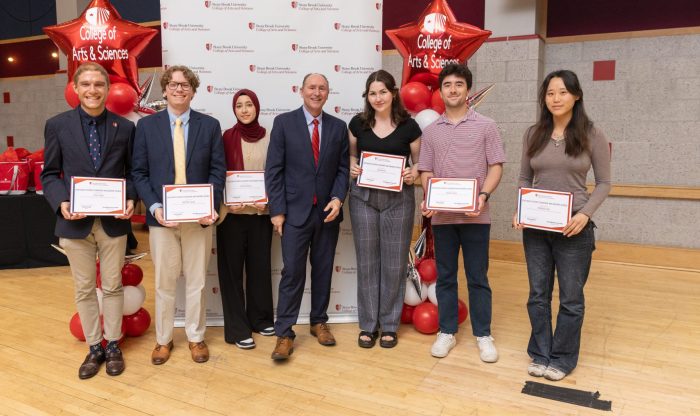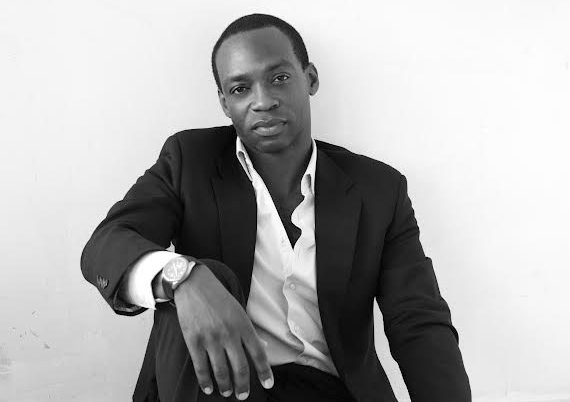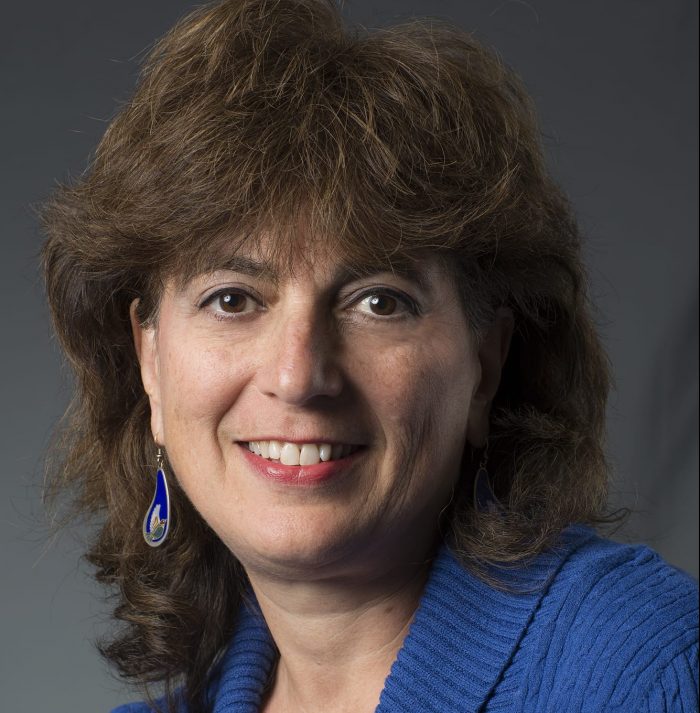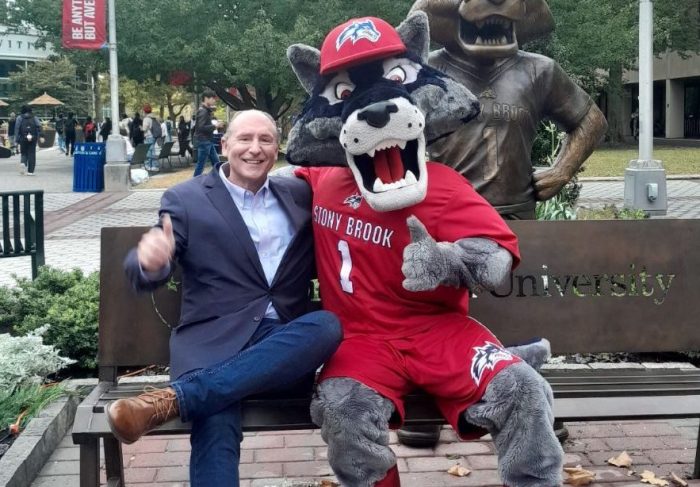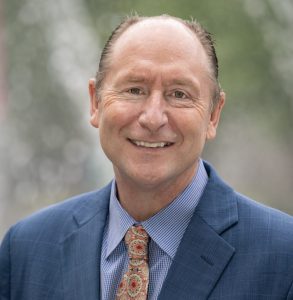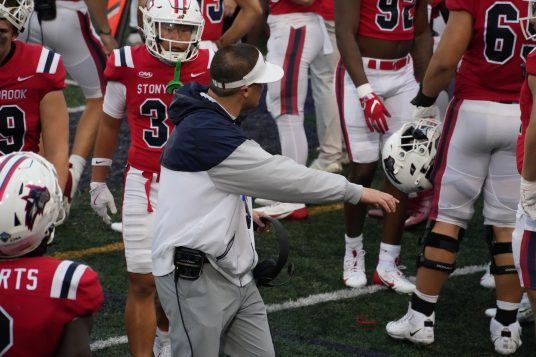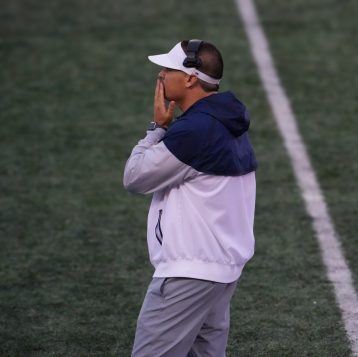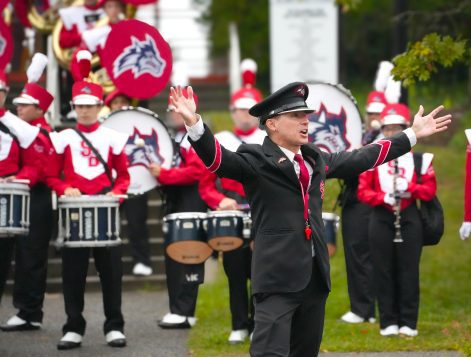By Daniel Dunaief
Stony Brook University’s Dean of the College of Arts and Sciences has his own summer homework.
In the next few months, David Wrobel plans to prepare for a meeting with Andrea Goldsmith, the incoming president of the university who will take over the reins on August 1st.
“That’s my June and July job, to fully articulate everything we’re trying to accomplish in the college,” Wrobel said. That includes the college’s three core strategic goals.
These goals include fostering student success, supporting research and scholarly success and investing in infrastructure and facilities and expanding institutional resources.
Wrobel himself arrived at Stony Brook from the University of Oklahoma in August and has focused on several campus initiatives.
Within two weeks of his tenure, heavy August rains pummeled the Chemistry Building, causing extensive damage.
“Chemistry desperately needs a state of the art building to facilitate research and the massive number of introductory lab courses and lab instruction,” Wrobel said.
Wrobel has been working to pitch to SUNY the idea for a new building, which is a top priority for the university.
“There is good momentum for chemistry to get that support from the state,” he said.
The university could break ground on a new building that could be around 400,000 square feet within two to three years and the project could take another two to three years to construct.
The goal is to create a building that meets New York State building requirements in terms of energy efficiency.
“With a chemistry building of this kind, you have massive HVAC needs because of the nature of some of the labs,” Wrobel said. The building would have significant exhaust needs for fume hoods.
It could be challenging to make a chemistry building that is completely energy neutral, but the “goal is to get as close as possible,” he added.
Wrobel greatly appreciated the support of everyone involved in responding to the immediate needs of the department in the aftermath of the storm.
“The department, the faculty, the graduate students, the maintenance and facility staff have all been incredible” in reacting to the damage, Wrobel added. “We all know that that’s a massively important infrastructure need for the university on the science side.”
To be sure, Wrobel recognized that other disciplines, such as physics, math and life sciences could also use upgraded facilities as well.
Staller Center upgrades
On the arts and humanities side, the celebrated Staller Center, which is home to numerous well-attended campus performances, high profile lectures and annual events such as the Stony Brook Film Festival, is aging and needs a major overhaul.
The university is planning to redo the roof, windows, HVAC, lighting and ceilings.
These needs “have to be addressed for the building to work for the needs of our students, faculty, staff, and for the community members who visit the Staller Center for performances,” Wrobel explained in an email. “The current building is very much on the small side given the growth of the university since it was built.”
Wrobel wishes there were a new building project.
“If anyone would like to help Stony Brook finance an Arts Center to house its excellent departments and programs we would be thrilled,” he wrote in an email.
In the meantime, the university is looking to leverage state funding and donor support for the renovation and beautification of the building.The two major wings of the Staller Center would each empty out for a two year period.
That presents “massive logistical challenges,” he said.
The university will work on how to find places for the departments of music and art as well as with the theater itself, with a lineup of productions.
“This is a really important initiative that speaks to how much of the identity the arts have become at Stony Brook,” Wrobel said. “The institution’s reputation has been made in STEM areas. We have incredibly strong arts and music departments as well as our humanities.”
Part of the philanthropic solicitations could include offering the rights to name individual spaces or rooms after donors.
Fundraising
With Goldsmith starting her tenure as president in August, the campus community is well aware of the potential for a new fundraising campaign initiative aligned with the university’s ongoing needs and priorities.
Even before she arrives, however, donations have been increasing, including from current and former faculty and alumni who have joined other universities or entered the private sector.
In the last year, the university has received about 36 gifts that are for $100,000 or more.
“I think this will be one of the most successful years in fundraising,” Wrobel said.
Stepping up
Amid challenging times with federal funding for research, Stony Brook has lost some training grants that impacted post doctoral students and graduate students in chemistry and a few other core science departments.
A combined effort from Provost Carl Lejuez, Wrobel, VP for Research and Innovation Kevin Gardner and others helped ensure that those students who would have lost their positions can continue to work and contribute to the university.
“It’s our responsibility to make sure they are kept whole, with those training grants,” Wrobel said.
Amid concerns about future federal funding, the university remains committed to its varied departments.
He said he supports the arts and humanities, “just as I support sciences and social and behavioral sciences,” he said.
With 27 departments, a dozen centers, 13,000 students, and 600 faculty, the university has numerous levers it could pull to make a quick gain somewhere.
“You have got to be thinking about these things long term,” Wrobel said. “Our goal is to move up the rankings of the AAU. We’re already part of the most prestigious organization of American Universities. Our goal is not to stay a member. Our goal is to move up the rankings.”
In responding to requests from the Dean Student Leadership and Advisory Committee, Wrobel has worked to enhance the six floors of common spaces at the Social and Behavioral Sciences building.
Students wanted more spaces where they were comfortable working and where they could meet their social and studying needs.
Wrobel is hoping that the university can turn some “drab common spaces” into much more “user friendly and study friendly spaces” this summer. This is a $250,000 to $300,000 project that also involves some new flooring and electrical upgrades.
Additionally, Wrobel is eager to forge connections with students throughout the university. He has made personal calls to students who have won awards.
Despite the hardships that campuses across the nation have been facing amid fiunding pressure and a cavalcade of questions from political leaders, the university is in a “strong place,” said Wrobel. “It’s been a wonderful year for recruiting.”
As for his life on Long Island, Wrobel feels that the community has been incredibly friendly and welcoming, on campus and across local towns.

